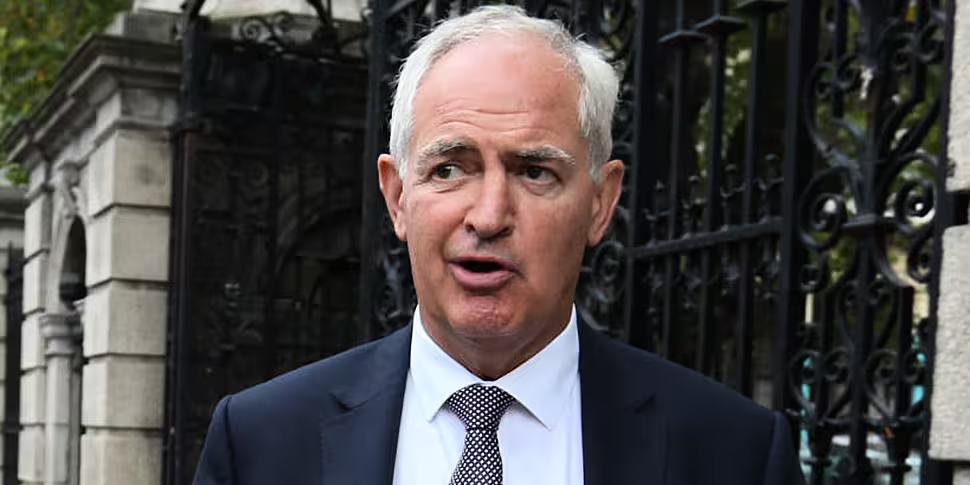The former master of the National Maternity Hospital has claimed the Tánaiste is '100% wrong' about a Catholic ethos at Holles Street.
Dr Peter Boylan was responding after Leo Varadkar told Newstalk when he trained there, he 'never felt there was a nun or a priest' looking over his shoulder.
"Holles Street, the National Maternity Hospital, is a Catholic-ethos hospital, at least on paper the chairman is the Archbishop of Dublin, although he wants to come off that.
"Notwithstanding that, Holles Street is a hospital in which terminations are performed, in which assisted reproduction is provided, so I think sometimes people can take this issue a little bit further than the facts will allow.
"I worked there, I did part of my training in the National Maternity Hospital, I never, ever felt that there was a nun or a priest looking over my shoulder when it came to giving the right care to women," Mr Varadkar said on Sunday.
Mr Varadkar also said the new National Maternity Hospital will "absolutely" carry out clinical procedures contrary to the Catholic ethos.
Dr Boylan also voiced his concerns about clinical independence at the new hospital.
But writing on Twitter, he said: "The Tánaiste is 100% wrong about Catholic ethos in Holles Street. In making that mistake he precisely proves my point about the critical issue of the ownership of the land on which the new National Maternity Hospital is to be built.
The Tánaiste is 100% wrong about Catholic ethos in Holles Street. In making that mistake he precisely proves my point about the critical issue of the ownership of the land on which the new National Maternity Hospital is to be built. Let me explain in this thread... 1/7 https://t.co/oi5DEBQ9h1
— Peter Boylan (@drboylan) June 21, 2021
"The NMH was established by Royal Charter in 1903. There is *no* Catholic ethos is that charter nor in the amended Charter of 1936, nor the bye-laws.
"That is crystal clear - and that is why the Tánaiste never experienced Catholic ethos when he worked there.
"So why is the Archbishop the *titular* chairman?
"When the original hospital opened in the 1890s the catchment area around Holles Street was mainly Catholic, hence the representation of the Archbishop and local parish priests in the Governors.
"A historical hangover", Dr Boylan said.
He added: "Critically - and this is how the Tánaiste makes my point - it is the 100 independent Governors of Holles Street who own the land, the building and the operation in full. The Catholic Church has no control.
"That is how IVF, contraception, abortion etc can be done at Holles [Street].
"But not at St Vincent's which is Catholic owned.
"The Tánaiste this morning has therefore reinforced the point about absolute need for the State to own the land on which the new maternity hospital is to be built.
"Without State ownership of the land he is also wrong to 'guarantee' that procedures forbidden by the Catholic Church will be possible at the new hospital.
"At stake is women's reproductive health and €800 million (and counting) of public money".
Service 'on terms of owners with a Catholic ethos'
Concerns have been raised about clinical independence at the hospital after the Sisters of Charity transferred land ownership of the site to a new charity that will operate the hospital and lease it to the State.
Noeline Blackwell, CEO of Dublin Rape Crisis Centre, told Newstalk Breakfast she is unsure that women will get a non-judgmental, fair service.
"I'd love to be able to come on and say 'I'm going to explain it all to you now' - but actually the problem is that I cannot.
"It is still very murky and grey.
"As far as we know, the Sisters of Charity have given the land for the proposed Maternity Hospital to a private company, that private company seems to have - as shareholders - the Sisters of Charity and to have adherence to the ethos of the founder of the Sisters of Charity, Mary Aikenhead."
Ms Blackwell said any such ethos for a maternity hospital would limit its abilities.
"When I just look at this in terms of people trying to access maternity rights services - reproductive rights services, sterilisation, abortion, IVF, even contraception - and they're looking at going to a venue where the ownership of the institution is with a Catholic ethos.
"And think for all the women, but the people in general because there will be men's rights engaged in this as well - but principally for women's rights, for women's health.
"Having to face into perhaps getting a service, but feeling that it will be delivered on terms of owners with a Catholic ethos, makes me wonder about whether women can trust that they will get a non-judgmental, fair, rights-based service.
"That they will be able to access things in the context of a country where we still have that sense, and where women will very often have the sense, that even though it is their right it is something that they have to explain [and] that they will be judged on", she said.









